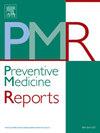Association between higher mortgage payment-to-income ratio and greater psychological distress among high-income homeowners in Japan: A cross-sectional study
IF 2.4
3区 医学
Q2 PUBLIC, ENVIRONMENTAL & OCCUPATIONAL HEALTH
引用次数: 0
Abstract
Objective
While the relationship between higher housing cost burden and poorer mental health has been established in lower-income groups, research examining high-income populations is scarce. We aimed to examine this relationship among high-income homeowners in Japan.
Methods
We conducted a cross-sectional study on 6753 Japanese homeowners in detached houses. Data were collected as part of an ongoing panel survey, from new survey respondents during Wave 2 (Jul-Sept 2023) and Wave 3 (Jan-Mar 2024). Psychological distress, measured using the Kessler 6 scale, was the dependent variable. The explanatory variable was the mortgage-to-income ratio, categorized into two and six levels. We performed modified log Poisson regression analyses, incorporating income stratification, with missing data handled by multiple imputation.
Results
For both overall respondents (PR = 1.22, 95 % CI 1.11–1.35) and the high-income group (PR = 1.23, 95 % CI 1.09–1.39), individuals with mortgage payment ratios ≥30 % were more likely to report psychological distress compared with those <30 %. While the low-income group showed a marginally similar tendency (PR = 1.21, 95 % CI 1.00–1.46), this association was not robust in the sensitivity analysis.
Conclusion
Higher mortgage payment ratios were associated with greater psychological distress even among high-income homeowners. The impact of housing cost stress on psychological distress may be more extensive than previously recognized.
求助全文
约1分钟内获得全文
求助全文
来源期刊

Preventive Medicine Reports
Medicine-Public Health, Environmental and Occupational Health
CiteScore
3.90
自引率
0.00%
发文量
353
 求助内容:
求助内容: 应助结果提醒方式:
应助结果提醒方式:


